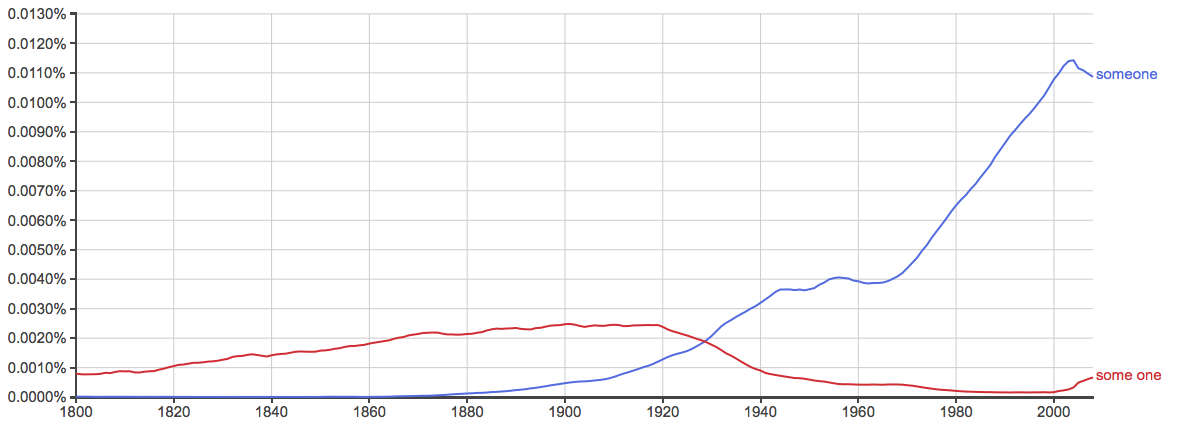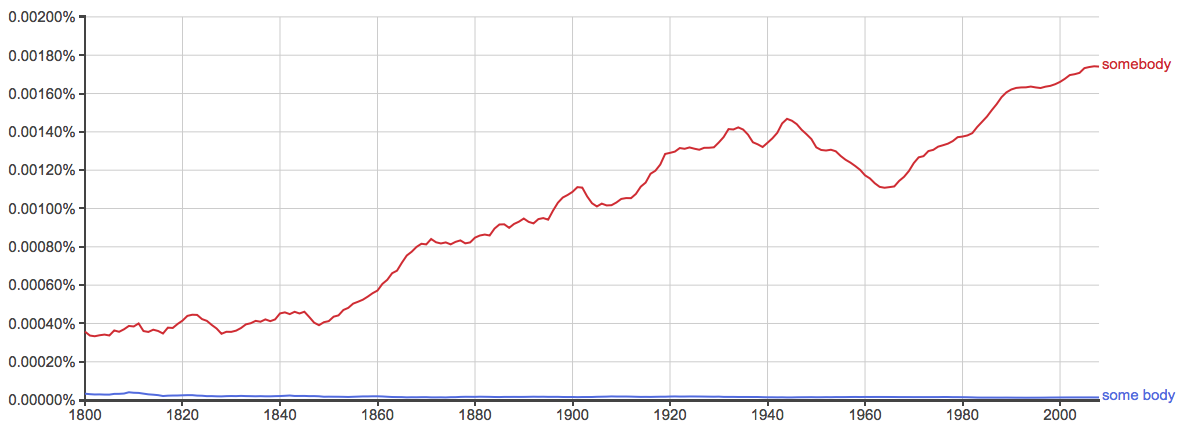In English, synonyms are words that are alike in meaning. Idiotic and stupid are synonyms, for instance; so are crash and wreck in many contexts. Beautiful and lovely are also synonyms.
The beauty of synonyms is that we don’t need to fall back on the same tired words and phrases for everything we want to say—we can add variety and color to our writing to make it more interesting to read. And no one enjoys repeating the same things over and over again, even in writing.
Somebody and someone are English synonyms, but there are still situations where you might want to choose one or the other.
What is the Difference Between Someone and Somebody?
In this post, I will compare somebody vs. someone. I will use each of these words in multiple example sentences, so you will be able to see how they appear in context.
Plus, I will show you a mnemonic device that makes choosing somebody or someone much easier.
When to Use Someone
 What does someone mean? Someone is a pronoun. It refers to an unspecified person. Maybe the actual identity of the person doesn’t matter, or maybe the identity is unknown. Either way, if you need to refer to a person, but not any specific person, someone is a good choice.
What does someone mean? Someone is a pronoun. It refers to an unspecified person. Maybe the actual identity of the person doesn’t matter, or maybe the identity is unknown. Either way, if you need to refer to a person, but not any specific person, someone is a good choice.
- “Someone’s poisoned the water hole!” Tom yelled several times.
- “We need someone to watch the back stairwell in case the zombies come up from that way,” said Elena.
Someone is generally considered more appropriate for formal writing, like college essays or work emails with your boss. No one will fire you for typing somebody, but some zealous professors might correct you if you use it in a formal essay.
When to Use Somebody
 What does somebody mean? Somebody means exactly the same thing as someone. It can be used in all of the same contexts, and it will not change the meaning of the sentence at all. To wit: notice that I have copied these example sentences almost exactly as they appear above, only changing someone to somebody:
What does somebody mean? Somebody means exactly the same thing as someone. It can be used in all of the same contexts, and it will not change the meaning of the sentence at all. To wit: notice that I have copied these example sentences almost exactly as they appear above, only changing someone to somebody:
- “Somebody’s poisoned the water hole!” Tom yelled several times.
- “We need somebody to watch the back stairwell in case the zombies come up from that way,” said Elena.
The meanings of the sentences have not changed. Again, as mentioned above, someone is generally the preferred pronoun for formal writing.
Some one or Someone? Some body or Somebody?
The two-words spelling of each of these words is outdated, and it should never appear in your writing.


For brief reference, you can see that the two-word spelling of someone hasn’t been predominant since the beginning of the 20th century. Similarly, somebody has been the predominant spelling since at least the year 1800.
Trick to Remember the Difference
The decision regarding when to use someone or somebody is largely academic: the words mean the same thing and can always be substituted for each other.
The choice between these two words should be made according to whichever one fits better in a sentence. Admittedly, this is something of a judgment call, but one rule of thumb is that someone is a better option for most formal writing scenarios.
Since someone has an N, like professional, remembering to use someone in professional settings should be simple.
Summary
Is it someone or somebody? Someone and somebody are synonyms. Both words are pronouns that refer to an unspecified person, whether their identity is unknown or simply does not matter.
- Someone and somebody are interchangeable.
- But, someone is preferred in formal writing.
Contents
